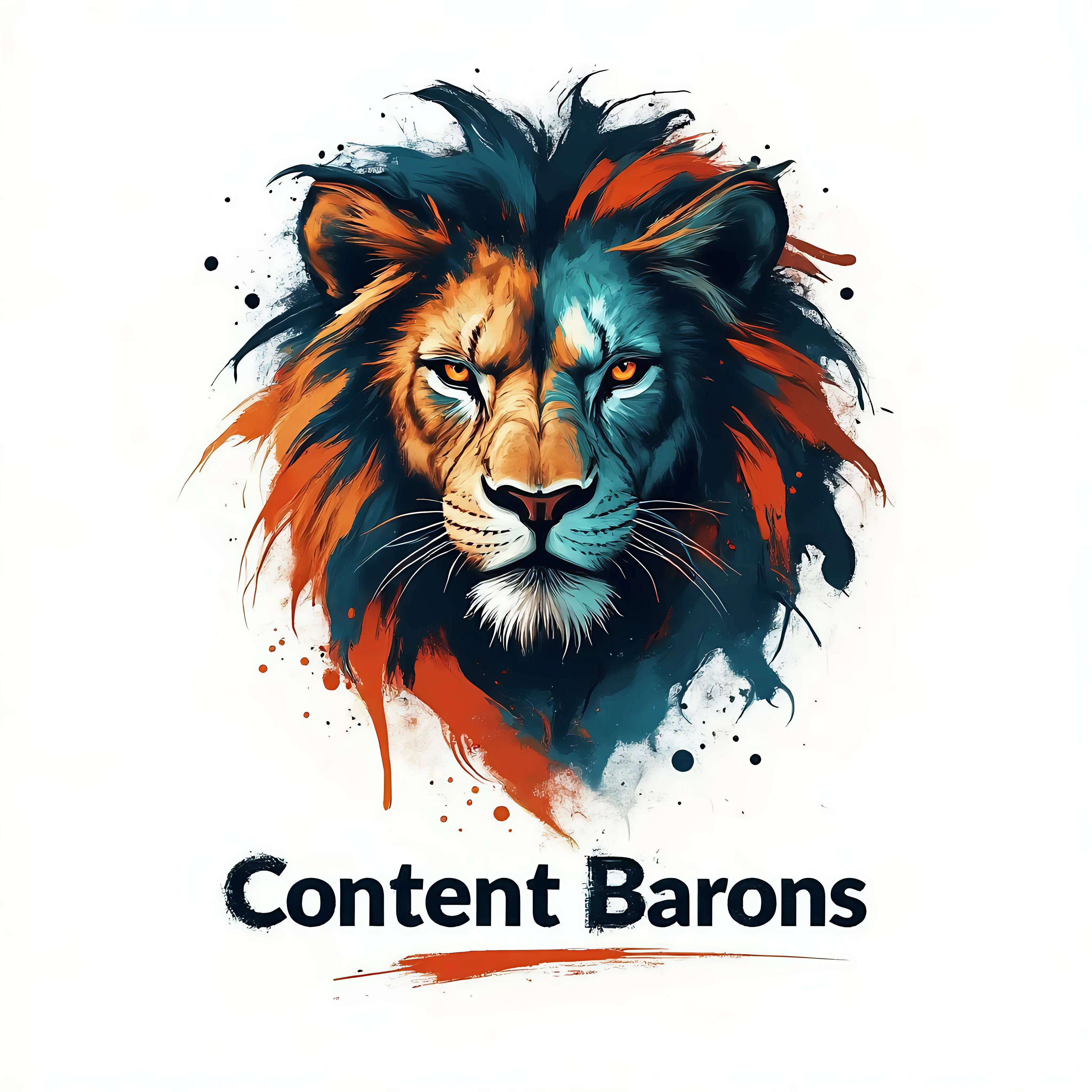AI Content Creation: The Ultimate Guide to Creating Engaging and Authentic Content
Key Takeaways
- AI content creation is a powerful tool for generating engaging and authentic content.
- Understanding how AI content creation works and its benefits is essential for successful implementation.
- Choosing the right AI content creation tools and platforms is crucial for achieving desired results.
- Tips for creating engaging and authentic content with AI include understanding your audience and refining the output.
- Ethical considerations in AI content creation are important for ensuring authenticity and transparency in the content.
Artificial Intelligence (AI) content creation is revolutionizing the way businesses and individuals produce written material, images, and even videos. This innovative technology harnesses the power of machine learning algorithms and natural language processing to generate content that is both coherent and relevant to a given topic or prompt. AI content creation tools analyze vast amounts of data and learn from patterns to produce human-like text, making it possible to create large volumes of content quickly and efficiently.
The process of AI content creation typically begins with input from a human user, who provides a topic, keywords, or specific instructions. The AI system then processes this information and generates content based on its training data and algorithms. Advanced AI models, such as GPT-3 (Generative Pre-trained Transformer 3), can produce remarkably human-like text across a wide range of topics and styles.
As AI technology continues to evolve, the quality and sophistication of AI-generated content are constantly improving, blurring the lines between human-written and machine-generated text.
The Benefits of Using AI for Content Creation
One of the primary advantages of using AI for content creation is the significant time and resource savings it offers. AI-powered tools can generate large volumes of content in a fraction of the time it would take a human writer, allowing businesses to scale their content production efforts rapidly. This increased efficiency can lead to substantial cost savings, as companies can produce more content with fewer human resources.
Additionally, AI content creation tools can work around the clock, ensuring a consistent flow of content without the limitations of human working hours. Another benefit of AI content creation is its ability to produce content tailored to specific audiences and platforms. AI algorithms can analyze data on user preferences, engagement patterns, and search trends to generate content that is more likely to resonate with target audiences.
This level of personalization can lead to improved engagement rates and better overall performance of content marketing efforts. Furthermore, AI-generated content can be easily optimized for search engines, helping businesses improve their online visibility and attract more organic traffic to their websites.
Choosing the Right AI Content Creation Tools and Platforms
When selecting AI content creation tools and platforms, it’s essential to consider your specific needs and goals. Some platforms specialize in generating short-form content like social media posts and product descriptions, while others are better suited for long-form articles and blog posts. Evaluate the features offered by different tools, such as the ability to customize output, integrate with existing workflows, and provide multilingual support.
It’s also important to consider the quality of the AI model powering the tool, as more advanced models generally produce higher-quality content. User-friendliness and ease of integration are crucial factors to consider when choosing AI content creation tools. Look for platforms that offer intuitive interfaces and provide comprehensive documentation and support.
Additionally, consider the scalability of the tool and whether it can grow with your business needs. Some platforms offer tiered pricing plans that allow you to start small and upgrade as your content requirements increase. It’s also worth exploring tools that offer API access, enabling seamless integration with your existing content management systems and marketing automation tools.
Tips for Creating Engaging and Authentic Content with AI
| Content Type | Engagement Metric | AI Tool Used |
|---|---|---|
| Blog Post | Time on Page | Natural Language Processing |
| Social Media Post | Shares | Content Generation |
| Video | Views | Video Editing |
| Email Newsletter | Open Rate | Personalization |
To create engaging and authentic content with AI, it’s crucial to maintain a human touch throughout the process. Use AI-generated content as a starting point or foundation, and then refine and personalize it with your unique voice and expertise. Incorporate real-life examples, case studies, and personal anecdotes to add depth and authenticity to the content.
Additionally, ensure that the AI-generated content aligns with your brand’s tone and style guidelines to maintain consistency across all your marketing materials. Another important tip is to focus on providing value to your audience. While AI can generate large volumes of content quickly, it’s essential to prioritize quality over quantity.
Use AI to generate ideas and outlines, but invest time in researching and adding unique insights that your audience will find valuable. Regularly review and fact-check AI-generated content to ensure accuracy and relevance. Finally, encourage engagement by incorporating calls-to-action and asking thought-provoking questions that invite your audience to participate in the conversation.
Overcoming Challenges and Pitfalls in AI Content Creation
One of the main challenges in AI content creation is ensuring the accuracy and relevance of the generated content. AI models can sometimes produce factual errors or outdated information, especially when dealing with rapidly changing topics. To overcome this, it’s crucial to implement a robust editing and fact-checking process.
Assign human editors to review and verify AI-generated content, and establish a system for regularly updating the AI model’s knowledge base to ensure it remains current and accurate. Another potential pitfall is the risk of producing generic or repetitive content. AI models may sometimes generate content that lacks originality or fails to capture the nuances of complex topics.
To address this, focus on providing detailed and specific prompts to the AI tool, and use techniques like content spinning and rephrasing to add variety to the output. Additionally, consider using AI-generated content as a starting point for human writers to expand upon, adding unique perspectives and creative elements that set your content apart from competitors.
Best Practices for Integrating AI-Generated Content into Your Marketing Strategy
To successfully integrate AI-generated content into your marketing strategy, start by identifying areas where AI can provide the most value. This may include generating ideas for social media posts, creating first drafts of blog articles, or producing product descriptions at scale. Develop a clear workflow that combines AI-generated content with human oversight and editing to ensure quality and consistency.
Establish guidelines for how AI-generated content should be used and modified to align with your brand voice and messaging. Another best practice is to use AI-generated content strategically alongside human-created content. For example, you might use AI to generate data-driven reports or analyze trends, while relying on human writers for thought leadership pieces and in-depth analysis.
Regularly assess the performance of AI-generated content and compare it to human-created content to identify areas for improvement and optimization. Finally, be transparent with your audience about your use of AI in content creation, as this can help build trust and demonstrate your commitment to innovation.
The Future of AI Content Creation: Trends and Innovations to Watch
The future of AI content creation is likely to see significant advancements in natural language generation and understanding. We can expect AI models to become even more sophisticated in their ability to produce human-like text across various genres and styles. This may lead to the development of AI tools that can generate entire books or screenplays with minimal human input.
Additionally, we may see increased integration of AI content creation with other technologies, such as virtual and augmented reality, enabling the creation of immersive, interactive content experiences. Another trend to watch is the development of more specialized AI content creation tools tailored to specific industries or content types. For example, we may see AI tools designed specifically for legal document drafting, medical report writing, or technical documentation.
As AI technology continues to evolve, we can also expect improvements in multilingual content generation, making it easier for businesses to create content for global audiences. Finally, advancements in AI-powered content personalization may lead to the creation of highly tailored content experiences that adapt in real-time to individual user preferences and behaviors.
Ethical Considerations in AI Content Creation: Ensuring Authenticity and Transparency
As AI content creation becomes more prevalent, it’s crucial to address the ethical implications of using machine-generated text. One of the primary concerns is the potential for AI-generated content to spread misinformation or perpetuate biases present in the training data. To mitigate these risks, it’s essential to implement strict quality control measures and fact-checking processes.
Additionally, organizations should be transparent about their use of AI in content creation, clearly disclosing when content has been generated or assisted by AI tools. Another ethical consideration is the impact of AI content creation on human writers and content creators.
As AI technology improves, there are concerns about job displacement in the content creation industry.
To address this, organizations should focus on using AI as a tool to augment human creativity rather than replace it entirely. This may involve retraining content creators to work alongside AI tools, focusing on higher-level tasks such as strategy development, creative direction, and in-depth analysis. By fostering a collaborative approach between humans and AI, organizations can harness the strengths of both to create more compelling and authentic content.
Case Studies: Successful Examples of AI-Generated Content in Action
The Washington Post has successfully implemented AI content creation in their newsroom with their in-house AI tool, Heliograf. This system has been used to generate short news articles and updates for events like local sports games and election results. By automating the creation of these routine stories, The Washington Post has been able to free up their journalists to focus on more complex, investigative reporting.
The AI-generated content has been well-received by readers and has helped the publication increase its output without sacrificing quality.
Another notable example is Alibaba’s AI copywriting tool, which has been used to generate product descriptions for the e-commerce giant’s platforms. The tool can produce thousands of product descriptions per second, significantly reducing the time and resources required for this task.
Alibaba reports that the AI-generated descriptions have been effective in improving click-through rates and conversion rates for product listings. This case demonstrates how AI content creation can be successfully applied in e-commerce to enhance product marketing and improve sales performance.
Expert Insights: Perspectives from Industry Leaders on the Role of AI in Content Creation
Industry experts have varying perspectives on the role of AI in content creation. Paul Roetzer, founder of the Marketing AI Institute, believes that AI will fundamentally change the way content is created and consumed. He argues that AI will enable marketers to produce more personalized, data-driven content at scale, leading to better engagement and ROI.
However, Roetzer also emphasizes the importance of human oversight and creativity in guiding AI content creation efforts. On the other hand, Ann Handley, a renowned content marketing expert, cautions against over-reliance on AI-generated content. While acknowledging the potential of AI to streamline content creation processes, Handley stresses the importance of maintaining a human touch in storytelling and brand communication.
She advises marketers to use AI as a tool to enhance their creativity and productivity, rather than as a replacement for human-driven content strategy and creation. These diverse perspectives highlight the ongoing debate about the optimal balance between AI and human involvement in content creation.
FAQs
What is AI content creation?
AI content creation refers to the use of artificial intelligence technologies, such as natural language processing and machine learning, to generate written or visual content. This can include anything from articles and blog posts to social media posts and marketing materials.
How does AI content creation work?
AI content creation works by analyzing large amounts of data to understand patterns and trends in language and content. This allows AI algorithms to generate new content that is relevant, engaging, and tailored to specific audiences. AI content creation tools can also be trained on specific styles and tones to mimic human writing.
What are the benefits of using AI for content creation?
Some benefits of using AI for content creation include increased efficiency, scalability, and the ability to generate personalized content at scale. AI can also help with content ideation, optimization, and distribution, ultimately saving time and resources for businesses.
How do you choose the right AI content creation tools and platforms?
When choosing AI content creation tools and platforms, it’s important to consider factors such as the specific needs of your business, the level of customization and control you require, the quality of the generated content, and the integration capabilities with your existing systems.
What are some tips for creating engaging and authentic content with AI?
Some tips for creating engaging and authentic content with AI include providing clear instructions and guidelines to the AI system, reviewing and editing the generated content for accuracy and tone, and incorporating human creativity and storytelling into the content creation process.
What are some challenges and pitfalls in AI content creation?
Challenges and pitfalls in AI content creation can include issues with accuracy and relevance, potential biases in the generated content, and the need for human oversight and quality control. It’s also important to consider ethical considerations and transparency when using AI for content creation.
What are the best practices for integrating AI-generated content into your marketing strategy?
Best practices for integrating AI-generated content into your marketing strategy include aligning the content with your brand voice and values, testing and optimizing the content for performance, and leveraging AI insights to inform your overall content strategy and customer engagement.
What are the future trends and innovations to watch in AI content creation?
Some future trends and innovations to watch in AI content creation include advancements in natural language generation, the integration of AI with other creative tools and platforms, and the development of AI-powered content personalization and recommendation systems.
What are the ethical considerations in AI content creation?
Ethical considerations in AI content creation include ensuring transparency about the use of AI, avoiding the spread of misinformation or fake news, and addressing potential biases in the generated content. It’s important to prioritize authenticity and trust in AI-generated content.
Can you provide some successful examples of AI-generated content in action?
Successful examples of AI-generated content in action include personalized product recommendations on e-commerce websites, automated news and sports reports, and AI-powered chatbots and virtual assistants that engage with customers in natural language.
What are some expert insights on the role of AI in content creation?
Industry leaders emphasize the potential of AI to enhance creativity, streamline content production, and deliver personalized experiences for audiences. They also stress the importance of human oversight and creativity in ensuring that AI-generated content remains authentic and resonates with audiences.






